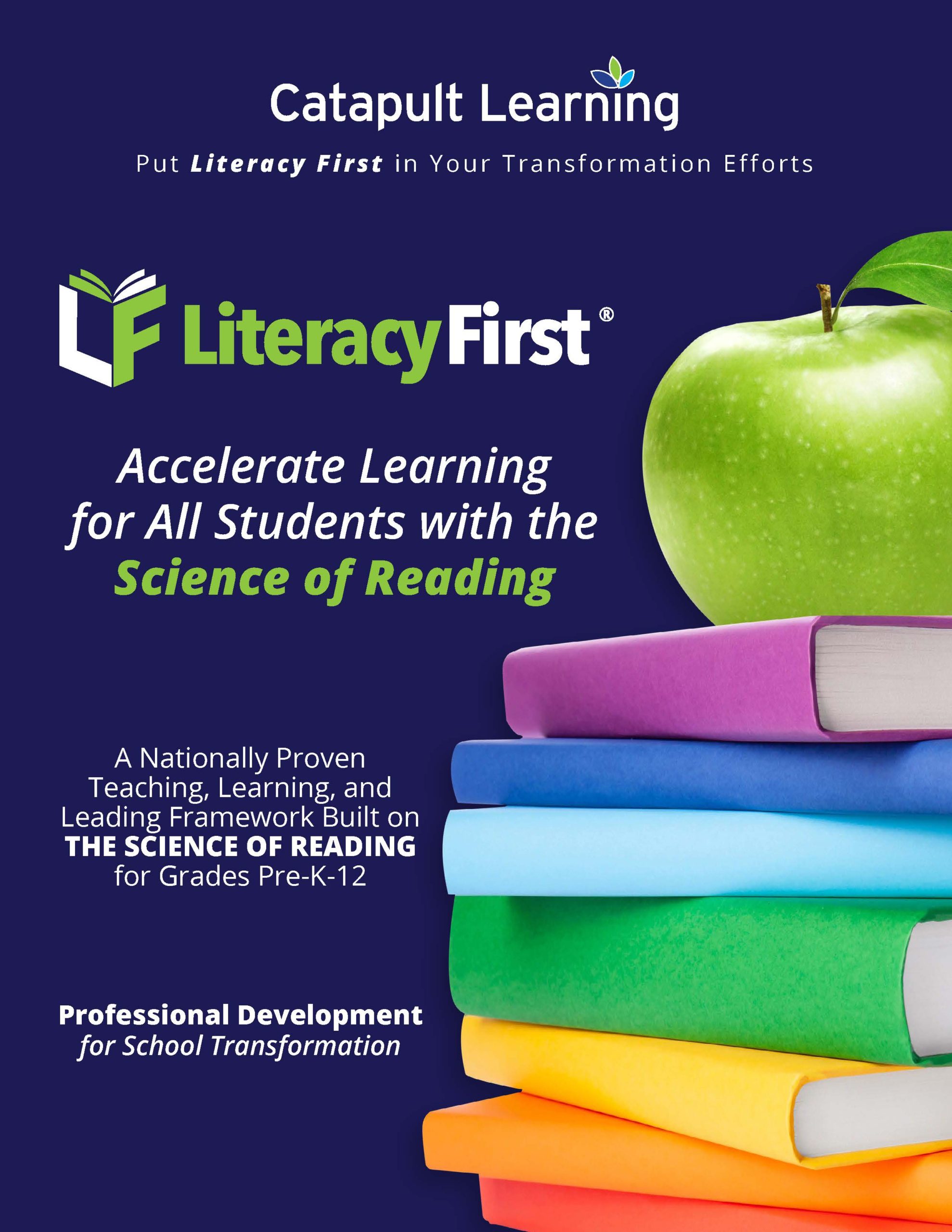Build a School-Wide Culture of Literacy
At Catapult Learning, we believe literacy is a fundamental right for all K-12 students. Literacy skills allow students to read, write, and communicate effectively across all subjects, and should be accessible to everyone. Strong literacy skills are a key to future academic success, career opportunities, and active citizenship. Catapult Learning offers a full range of comprehensive professional learning solutions designed to equip educators with the knowledge and strategies to create literacy-rich environments, improve instruction, and promote a shared commitment to literacy growth across all grade levels.
Catapult Learning’s Literacy Implementation Continuum is a tool that can be used to identify the status of implementing a comprehensive evidence-based literacy program.

Build a School-Wide Culture of Literacy
At Catapult Learning, we believe literacy is a fundamental right for all K-12 students. Literacy skills allow students to read, write, and communicate effectively across all subjects, and should be accessible to everyone. Strong literacy skills are a key to future academic success, career opportunities, and active citizenship. Catapult Learning offers a full range of comprehensive professional learning solutions designed to equip educators with the knowledge and strategies to create literacy-rich environments, improve instruction, and promote a shared commitment to literacy growth across all grade levels.
Catapult Learning’s Literacy Implementation Continuum is a tool that can be used to identify the status of implementing a comprehensive evidence-based literacy program
Literacy First®: The Science of Reading
Equip every educator to be instructional experts in reading and literacy.
Developing proficient, fluent readers requires that teachers use proven instructional strategies grounded in up-to-date research in the science of reading. Literacy First: The Science of Reading is Catapult Learning’s comprehensive, research-based professional learning process that supports developing literacy in all subject areas, promoting a schoolwide culture of literacy.
Achieve Sustainable Academic Achievement by engaging in our customized approach:
- Systematic and explicit professional development proven to deliver dramatic gains in student achievement
- A research-based change process that builds the capacity of leaders and teachers to ensure success beyond the partnership
- Job-embedded coaching that delivers personalized support and integration of best practices in every classroom
Foster a Stronger Learning Culture
With Literacy First, your school can achieve instructional coherence and create literacy-rich learning environments. Designed to complement any literacy program, the Literacy First process helps educators:
- Establish a unified, school-wide instructional model.
- Implement curriculum aligned to standards, focusing on reading and writing fundamentals.
- Use formative assessments to guide instruction and interventions.
- Support research-based practices that lead to exceptional student achievement.
Engage your educators in a transformative literacy journey with Literacy First, grounded in the latest research and designed for long-term success.
I sincerely believe that because of Literacy First, our school climbed to the top of the educational ladder, the faculty became a closer-knit group, and the students matured greatly. But most of all, this old dog learned a lot of new tricks. My only regret is that I didn’t know about Literacy First years ago.
Enhanced Core Reading Instruction™ (ECRI)
Catapult Learning has partnered with Boston University WISE to bring ECRI – a multi-tiered, evidence-based literacy system - to schools nationwide. Our professional development and coaching services empower educators with the skills and knowledge to deliver efficient, effective reading instruction. With our support, your team will be equipped to implement ECRI and elevate student literacy outcomes.
ECRI is designed to boost the efficiency and effectiveness of reading instruction in K-2 classrooms. This multi-tiered system, combined within a professional learning and coaching, offers explicit and systematic routines proven to close the gap for at-risk readers. Research-backed and vetted by the What Works Clearinghouse and the National Center on Intensive Intervention, ECRI enhances your core reading programs for better student outcomes.
Super Charge Core Instruction
Provide explicit instructional routines and daily Tier I & Tier II lessons that supplement your existing core reading program and help striving readers achieve reading proficiency
Aligned to Core Programs
- Benchmark Advance
- Into Reading
- Journeys
- EL Education
- Wonders
- Open Court Reading
- Reach for Reading
- myView Literacy
- Core Knowledge Language Arts
- And more!

ECRI provides the structures and routines necessary for our students to learn to decode and ultimately, learn to read. ECRI gives us a common language, skills, and tools to ensure the right steps are taken for our students to become readers!
Comprehensive Literacy State Development (CLSD) Grant
With nearly $149 million awarded to 22 states and Washington, D.C. in 2024, the Comprehensive Literacy State Development (CLSD) Grant is driving change in literacy education. Over a five-year period, these funds will enhance literacy skills, especially for underserved students, by closing literacy gaps, improving instruction, and supporting professional development for educators.
CLSD-funded programs focus on access to high-quality literacy education, ensuring continuity across grade levels. States and local education agencies (LEAs) are empowered to create lasting, impactful literacy plans that prioritize:
- Evidence-based literacy instruction in underserved communities.
- Professional development for educators.
- Seamless alignment of literacy programs across all grades.


